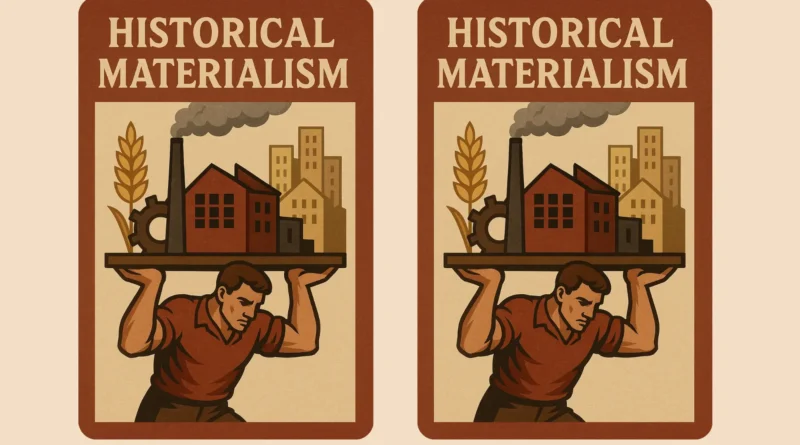IGNOU Assignment Short note Historical Materialism
IGNOU Assignment Short note Historical Materialism
Historical Materialism is a theory developed by Karl Marx and Friedrich Engels to explain the course of human history through the lens of material conditions, especially the means of production and economic relationships. It is a key concept in Marxist philosophy, serving as the foundation for understanding how societies develop and change over time.
According to historical materialism, the economic base of a society—how goods are produced and distributed—determines its superstructure, which includes institutions like politics, law, religion, and culture. In this view, material (economic) forces are more influential than ideas in shaping history.
Marx argued that history progresses through a series of class struggles between those who control the means of production (the ruling class) and those who do not (the working class). These struggles eventually lead to revolutionary changes that transform one mode of production into another. For example:
- Feudalism gave way to capitalism through bourgeois revolutions.
- Marx believed capitalism would ultimately be replaced by socialism, and eventually communism, where class divisions and private property would be abolished.
The key stages in the development of society, according to Marx, are:
- Primitive Communism – classless, communal societies.
- Slave Society – dominance of slave owners over slaves.
- Feudalism – power held by nobility over serfs.
- Capitalism – bourgeoisie vs. proletariat.
- Socialism – working class seizes the means of production.
- Communism – classless, stateless society.
Historical materialism views ideology, religion, and law not as independent drivers of change, but as reflections of the underlying economic structure. Thus, political and social institutions serve the interests of the ruling class until they are overthrown.
Critics argue that historical materialism oversimplifies history by reducing it to economic factors and ignores the role of culture, ideas, and individual agency. However, it remains a powerful tool for analyzing societal change and inequality.
In summary, historical materialism is a method of understanding human history and societal development through the lens of material conditions and class conflict. It emphasizes that changes in economic structures are the primary drivers of social and political transformations.
Click Here More
More Offers
IGNOU Assignment Short note Historical Materialism IGNOU Assignment Short note Historical Materialism IGNOU Assignment Short note Historical Materialism IGNOU Assignment Short note Historical Materialism

